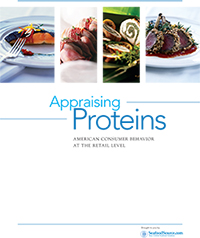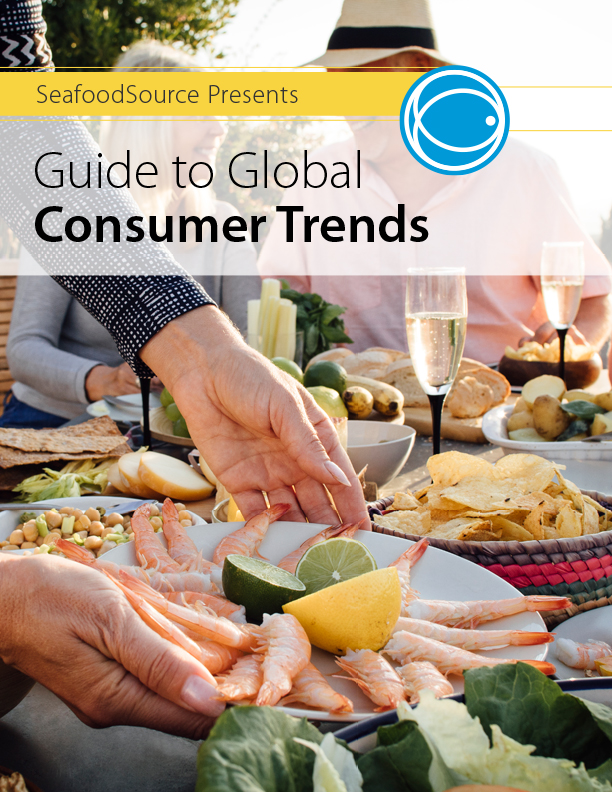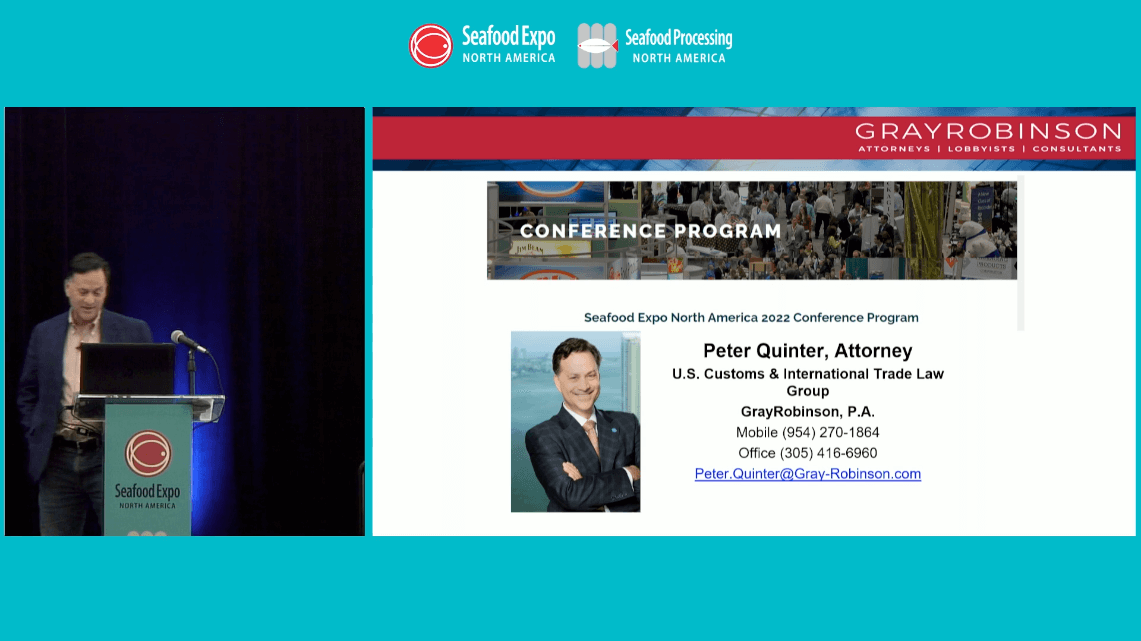Filters
Product Categories
My Dinner Tonight! Delighting the Multicultural Seafood Consumer

Animal waste is an unpleasant topic, but if it's not present in the mind of the average shrimp farmer it will be soon, as growing concerns about environmental impact will push shrimp farmers worldwide to curb their discharge rates. In this webinar, we'll hear about a project that's been going on for a few years now, featuring a shrimp farm with no discharge at all. For those looking to get ahead of the sustainability game, that's a tantalizing prospect, and we'll hear about how this farm is very likely a glimpse at what the shrimp farming industry will become.

This report details the findings of a SeafoodSource survey of more than 500 American seafood consumers and is the only major study to compare seafood with other grocery store proteins.

Seafood advocate, celebrity chef, and prolific author Barton Seaver has written a new book, “American Seafood – Heritage, Culture and Cookery from Sea to Shining Sea.” It offers an extended into the country’s fisheries, looking at their history, culture, culinary uses, and impact on the country. In an open-ended discussion, Seaver will discuss what he learned while researching and writing the book, his views on the importance of seafood sustainability efforts, his thesis that Americans should be eating more American seafood, and his views on what the seafood industry can do to make that happen.

Today’s seafood business landscape is bright. Consumers everywhere are finding value in seafood and are flocking to both retailers and restaurants in search of high-quality proteins.

Moderator: Peter Quinter, GrayRobinson, P.A.
Speakers:
Dean Leaman, Certified Group
Todd Owen, Cross Border Advisory Network, LLC
The two major Federal law enforcement agencies, Food and Drug Administration (FDA) and U.S. Customs and Border Protection (Customs) regulate the importation and distribution of seafood and fishery products in the United States. The FDA uses a methodology to target and inspect imported seafood, then allow it to proceed or refuse its entry into the United States. Customs also targets and inspects seafood shipments and has a new Withhold Release Order process to prohibit the importation of seafood made with forced labor. Customs continues collecting antidumping duties on shrimp from India, fish fillets from Vietnam, and many other seafood products from around the world. There are several penalties for importing misbranded or adulterated seafood. Learn how to lower your risk of being targeted and what to do when your seafood is selected for examination or your company has been added to the FDA's Import Alert list.

Seafood sustainability today is not what it was 20 years ago, or even what it was last week.

Speaker(s)/Moderator(s):
Dave Wittenberg, Founder, Verax Point Consulting
Duration: 55 minutes

In June, Sustainable Fisheries Partnership, a nonprofit dedicated to reducing the environmental and social impacts of fishing and fish farming, launched “Target 75,” an initiative setting the goal of seeing 75 percent of the world’s seafood sourced sustainably or improving toward sustainability by 2020.

Seafood and Human Health: The Science Behind Increasing Consumption Sustainably





